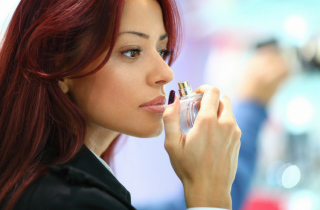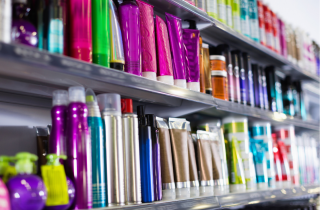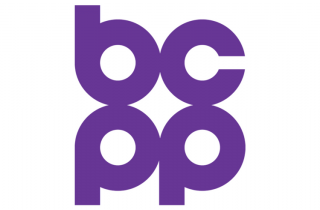CA first to force disclosure of secret toxic fragrance chemicals in cosmetics
Gov. Newsom signs historic right-to-know bill
FOR IMMEDIATE RELEASE
SEPTEMBER 30, 2020
CONTACT
Erika Wilhelm, Breast Cancer Prevention Partners & the Campaign for Safe Cosmetics, (415) 539-5005
Beth Conway, Women’s Voices for the Earth, (406) 543-3747 x230
Swati Sharma, California Healthy Nail Salon Collaborative, (310) 500-7155
Nourbese Flint, Black Women for Wellness, (323) 290-5955
SACRAMENTO — Governor Newsom made history today, by signing the Cosmetic Fragrance and Flavor Ingredient Right to Know Act of 2020 (SB312-Leyva) into law, making California the first government in the world to require the public disclosure of hazardous fragrance and flavor ingredients.
SB312 requires companies selling beauty or personal care products in California to report to the California Safe Cosmetics Program (SCP) any fragrance or flavor ingredient known to cause harm to human health or the environment. The SCP will then make this information available through their publicly accessible database. Reportable chemicals include those linked to cancer, reproductive or developmental harm, neurotoxicity, hormone disruption, allergies, and asthma — as well as air and water contaminants.
In the state of California, 1.6 tons of volatile organic compounds or VOCs, are emitted every day from the fragrance in cosmetics and personal care products alone. VOCs in personal care products (used to impart fragrance, aerosolize hair spray, or make nail polish hard) and products such as pesticides, printing inks, and cleaning agents are emerging as major sources of urban smog emissions. Understanding the sources of urban smog is critical to California’s effort to reduce air pollution. The most recent step in that effort was taken by Governor Newsom when he signed an executive order to phase out gas-powered vehicles by 2035 last week.
“With the enactment of SB312, California continues its trailblazing leadership on behalf of ingredient transparency and consumer and worker right to know, stating—loud and clear—that the health of people and the planet should always trump trade secrecy,” said Janet Nudelman, Director of Breast Cancer Prevention Partners’ Campaign for Safe Cosmetics. “Now, consumers will no longer have to wonder or worry if their great-smelling hair products, lotions, or perfume are hiding chemicals linked to breast cancer or other harmful health effects, or polluting our environment without their knowledge or consent.”
SB312 closes a federal labeling loophole that allows cosmetic companies to claim trade secret protection for chemicals used to impart fragrance or flavor in beauty and personal care products. Federal law requires that all of the ingredients in a cosmetic product appear on the product label, with the exception of fragrance, flavor, or colorants. As a result, that one word ‘fragrance’ or ‘flavor’ on a product label can hide anywhere between a dozen to hundreds of individual chemicals, some of which are hazardous to people and the planet. Even more alarming, data confirms that a third of all fragrance chemicals currently in use have been flagged as toxic or potentially toxic by scientists around the world.
“I thank Governor Newsom for signing SB312 (‘Cosmetic Fragrance and Flavor Ingredient Right to Know Act’) which will empower consumers and help them make educated decisions about which products to use with their kids and families. I have been privileged to work alongside our amazing bill sponsors—as well as dozens of non-profits, health groups and businesses—to bring SB312 to the finish line. I look forward to continuing to work with them to protect consumers and public health here in California,” said Senator Connie M. Leyva, author of SB312.
People have a fundamental right to know what ingredients they are being exposed to whether it is in the home, in the workplace, or public spaces. Knowing what ingredients are used in products is critical to eliminate the use of harmful ingredients. More transparency on a product-specific basis will not only give the public the ability to avoid ingredients that may harm their health, it is also a crucial first step in ensuring companies move to safer product ingredients.
“The more we learn about fragrance ingredients, the more it is clear why ingredient transparency is so urgently needed,” said Amber Garcia, Executive Director at Women’s Voices for the Earth. “But enacting SB312 isn’t simply about listing ingredients – it’s about ensuring corporations are held accountable for polluting our bodies and homes with harmful chemicals, and removing the barriers that prevent the public from having the information they need to avoid concerning ingredients like powerful allergens, or synthetic musks linked to breast cancer, or known hormone disruptors like phthalates – all of which can be found in fragrance. This victory is going to improve the health and well-being of millions of people, particularly women who are disproportionately exposed to fragrances and flavors.”
Many hair products used by black women and children contain hormone-disrupting chemicals, the majority of which are not listed on their labels, suggesting they are likely fragrance chemicals.
“We know Black women and other women of color are already overexposed to hazardous chemicals in our beauty and personal care products. SB312 is an important step to reducing the impact of toxic chemicals on our families and ourselves,” said Nourbese Flint, Policy Director at Black Women for Wellness. “While many families across the U.S. are juggling the very real impact of both a pandemic and economic downturn, it is ever more important that our Government is working on behalf of us. Through disclosure of these harmful ingredients, SB312 creates one less thing that Californians families have to worry about.”
Salon workers experience higher exposure to fragrances than the general population, which adds to their already high, daily exposure to toxic chemicals from the beauty products they work with every day while on the job. In fact, research has found that hair stylists and beauticians have a 47 times higher risk of fragrance skin allergies than people in other occupations.
“Professional nail and hair salon workers, many of whom are immigrant women, women of color, and low-wage earners, already bear a disproportionate burden of toxic exposures because of where they work or live,” said Swati Sharma from the California Healthy Nail Salon Collaborative. “Nail and hair salon workers also face a double whammy of fragrance exposure, given they use beauty products both in their personal and professional lives. With SB312, they can now obtain the previously secret information they need to avoid harmful ingredients in the beauty products they use every day at work, and will have the power to select safer products for their clients.”
SB312 will not just help people in California. California’s Safe Cosmetics database is available to everyone around the world, and once companies disclose SB312-reportable ingredients, those ingredients will no longer be eligible for trade secret protection. Furthermore, SB312 will also encourage safer products, because many companies would prefer to remove toxic chemicals, rather than publicly disclose them.
In 2017, California became the first state in the nation to require cleaning product ingredient disclosure through SB258 (Lara), including harmful ingredients used in fragrance. In 2018, California passed AB2775 (Kalra), becoming the first state in the nation to require disclosure of the ingredients on the labels of professional salon products.
###
Black Women for Wellness is a women-centered, multi-generational organization focused on building healthy communities and committed to the health and wellness of Black women and girls through education, empowerment, and advocacy. www.bwwla.org
Breast Cancer Prevention Partners (BCPP) is the leading national science-based policy and advocacy organization working to prevent breast cancer by eliminating our exposure to toxic chemicals and radiation. www.bcpp.org
The Campaign for Safe Cosmetics, a project of BCPP, is a national coalition of women’s health, environmental health and justice, consumer rights groups and forward-thinking cosmetics companies. www.safecosmetics.org
Founded in 2005, The California Healthy Nail Salon Collaborative is a statewide grassroots organization that addresses health, environmental, reproductive justice, and other social issues faced by its low-income, female, Vietnamese immigrant and refugee workforce. http://cahealthynailsalons.org
Founded in 1995, Women’s Voices for the Earth (WVE) is a womxn-led national environmental health organization that works to amplify voices to eliminate toxic chemicals that harm our health and communities. www.womensvoices.org
Types: Press Release



